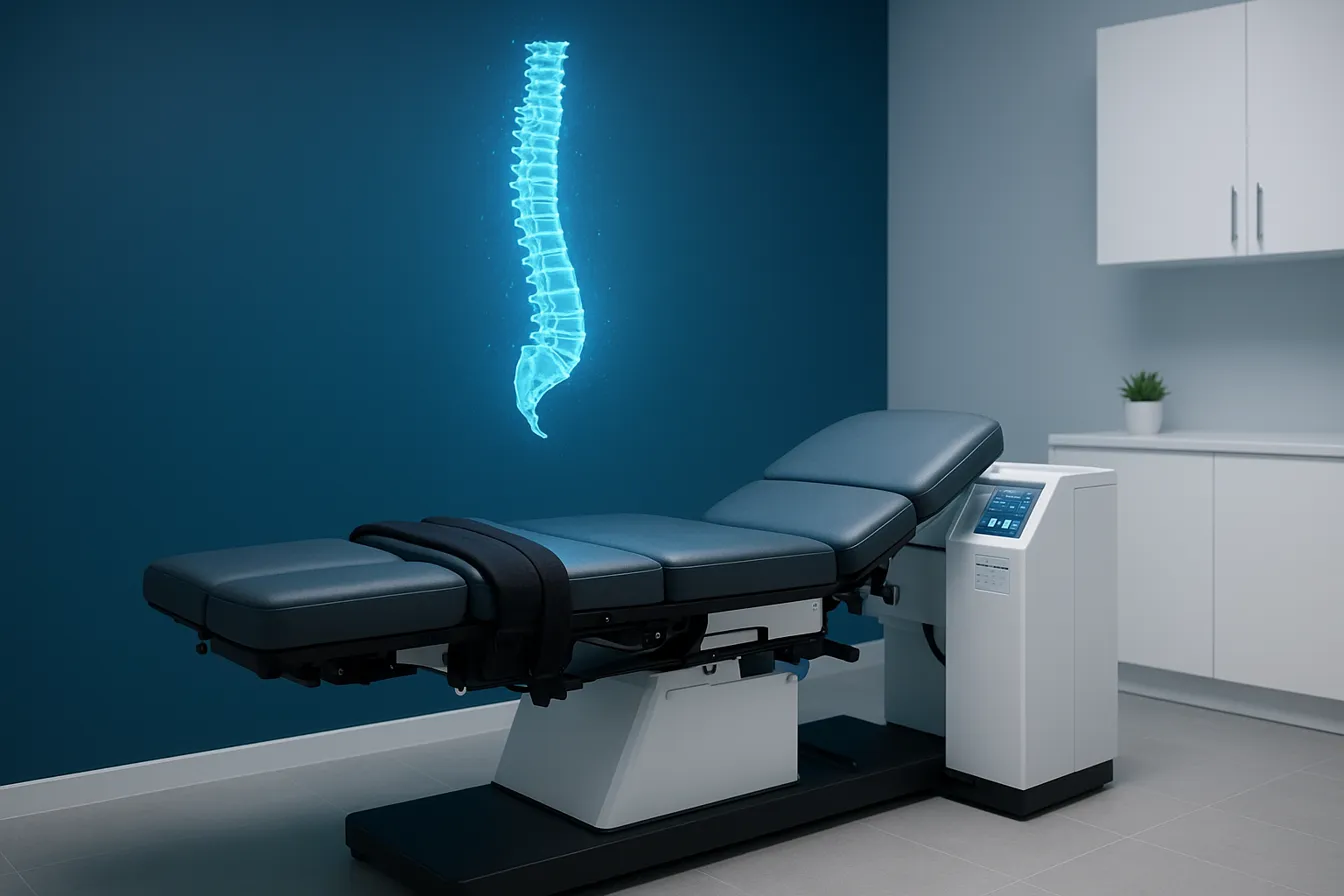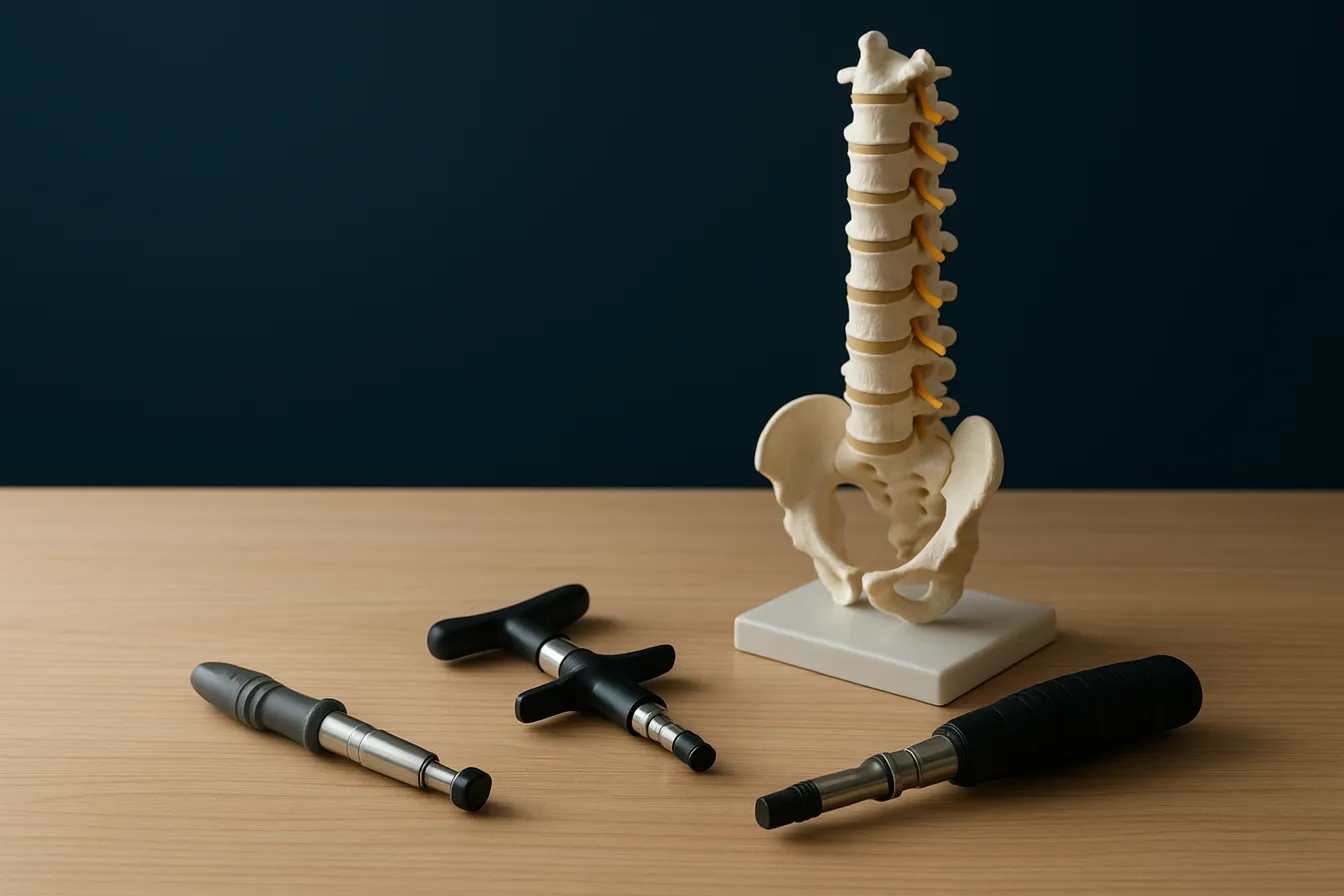Nutritional Counseling and Its Impact on Overall Wellness and Recovery
September 29, 2025
20 min

Understanding Nutritional Counseling's Role in Wellness and Recovery
Nutritional counseling has emerged as an essential component in promoting overall wellness and facilitating recovery from various health challenges, including addiction and mental health disorders. This personalized, science-based approach addresses the physical, emotional, and cognitive aspects of health by restoring nutritional balance, supporting brain function, and fostering sustainable lifestyle changes. Grounded in robust scientific evidence, nutritional counseling helps individuals rebuild their physical and mental resilience, improve health outcomes, and achieve long-term recovery goals. This article delves into the multifaceted impacts of nutritional counseling on wellness and recovery, highlighting its importance in today's integrative health landscape.
The Integral Role of Nutritional Counseling in Wellness and Recovery

What is the role of nutritional counseling in promoting overall wellness and recovery?
Nutritional counseling is a fundamental component of comprehensive recovery programs, especially in the context of substance use disorder (SUD). It offers personalized guidance tailored to each individual's needs, focusing on restoring nutritional balance and supporting physical and mental health.
Addiction often leads to nutrient deficiencies, including vitamins B complex, C, D, E, magnesium, and zinc, which are critical for cellular function, immune support, and nervous system health. Counseling helps identify and address these deficiencies through customized dietary plans and supplementation, aiding in detoxification and physical healing.
Proper nutrition supports addiction recovery by stabilizing mood, reducing withdrawal symptoms, and decreasing cravings. A balanced intake of proteins, complex carbohydrates, healthy fats, and antioxidant-rich foods can improve energy levels and mental clarity, critical for engaging in therapy and maintaining motivation.
Beyond physical health, nutrition influences mental wellness through the gut-brain axis, where gut health impacts mood and emotional regulation. Counseling educates clients on improving gut microbiota with fiber, probiotics, and prebiotics, which can lessen inflammation and improve emotional balance.
By fostering healthy eating habits and structured routines, nutritional counseling promotes sustainable lifestyle changes that reduce relapse risk. It encourages mindful eating, proper hydration, and the avoidance of trigger foods, all supporting long-term sobriety and wellness.
Ultimately, integrated nutritional guidance empowers individuals to regain control over their health, reinforcing recovery efforts and enhancing overall quality of life during and after treatment.
Nutrition’s Contribution to Physical and Mental Health Recovery
How does nutrition contribute to physical and mental health recovery processes?
Nutrition plays a crucial role in healing and restoring both physical and mental health, especially during recovery from substance use disorders (SUD) and related health issues. Proper intake of essential nutrients fosters tissue repair, strengthens immune defenses, and supports efficient energy production. This comprehensive nourishment is fundamental for overcoming the physical toll of substance abuse, which often involves malnutrition and vitamin deficiencies.
Nutrients like vitamins B1, B6, B12, zinc, magnesium, and omega-3 fatty acids significantly influence brain chemistry and neuroplasticity. These nutrients help regulate mood, reduce inflammation, and boost cognitive function, all of which are vital for mental health stability. For instance, vitamin B1 (thiamine), often depleted in alcohol dependence, supports nerve function and energy metabolism. Omega-3 fatty acids, found in fatty fish and walnuts, help reduce neuroinflammation, supporting emotional resilience.
A healthy gut microbiome also influences mental well-being by producing mood-regulating neurotransmitters, including serotonin. Dietary patterns that emphasize fiber intake, probiotics, and prebiotics foster a balanced microbiota, which is linked to fewer symptoms of depression and anxiety.
The Mediterranean diet exemplifies a balanced nutritional approach; it is rich in fruits, vegetables, nuts, whole grains, and fish. Clinical studies have found that adopting this diet correlates with lower depression scores and preserved cognitive health, underlining the importance of diet quality in recovery.
Addressing nutritional deficiencies through personalized plans and incorporating anti-inflammatory foods can further mitigate mental health risks. Such diets reduce systemic inflammation, a known contributor to mood disorders and cognitive decline. In this way, targeted nutrition supports long-term physical recovery from injuries and substance use, while also promoting mental wellness and resilience.
Nutrition’s Impact on Mental Health and Neuroinflammation
How does nutrition impact mental health and neuroinflammation?
Nutrition plays a vital role in maintaining mental well-being and preventing neuroinflammation, which is linked to various psychiatric and neurodegenerative conditions. The nutrients we consume influence brain structure, neurotransmitter production, and immune responses.
A diet rich in fruits, vegetables, whole grains, and healthy fats—like the Mediterranean diet—is associated with lower rates of depression, anxiety, and cognitive decline. These foods contain anti-inflammatory compounds and promote the production of neurotrophic factors such as Brain-Derived Neurotrophic Factor (BDNF), which supports neuronal growth and resilience.
Conversely, diets high in processed foods, sugar, refined grains, saturated fats, and trans fats can trigger systemic and neuroinflammation. This inflammation can affect brain regions involved in mood regulation and cognition, increasing the risk of mental health issues.
Key nutrients such as omega-3 fatty acids (EPA and DHA), B-vitamins, zinc, magnesium, and antioxidants are especially important. They help reduce neuroinflammation, support neurotransmitter synthesis, and protect neuronal health.
Improvements in diet quality—focusing on nutrient-dense foods and reducing pro-inflammatory ingredients—along with lifestyle changes like regular physical activity and gut health support, can lessen neuroinflammation and enhance mental health.
| Nutrients | Functions | Food Sources | Additional Notes |
|---|---|---|---|
| Omega-3 Fatty Acids | Reduce inflammation, support cell membrane fluidity, and neurogenesis | Fatty fish, walnuts, flaxseed | Important for nerve function and mood regulation |
| B-Vitamins | Support neurotransmitter synthesis and energy production | Leafy greens, whole grains, legumes | Deficiencies linked to depression and cognitive issues |
| Zinc and Magnesium | Modulate immune responses, support nerve transmission | Nuts, seeds, whole grains | Crucial for reducing neuroinflammation |
| Antioxidants | Combat oxidative stress and protect neurons | Fruits, vegetables, nuts | Lower oxidative damage associated with neurodegeneration |
The gut-brain connection
Emerging research highlights the importance of gut health in mental well-being, through the gut-brain axis. A diverse microbiome nurtured by fiber-rich foods like broccoli, asparagus, beans, and fruits can positively influence mood and reduce inflammation. Supportive bacteria produce compounds that regulate immune responses and neurotransmitter levels, such as serotonin—whose production partly occurs in the gastrointestinal system.
In summary, adopting dietary habits that emphasize whole, nutrient-dense foods while minimizing processed, inflammatory ingredients can help combat neuroinflammation, supporting better mental health outcomes and cognitive function.
Examining the Relationship Between Diet, Mental Health, and Physical Healing
What is the relationship between diet, mental health, and overall physical healing?
Nutrition plays a crucial role in supporting both mental well-being and physical recovery, especially for individuals recovering from substance use disorders. The quality of diet can influence inflammation levels, neurotransmitter production, and the health of the gut microbiome—all of which impact mood, cognitive function, and physical health.
In particular, nutrients such as omega-3 fatty acids, B vitamins, antioxidants, and minerals help nourish the brain and nervous system. These nutrients reduce inflammation, support neural communication, and promote the production of mood-regulating neurotransmitters like serotonin. Furthermore, a healthy gut microbiome, maintained through fiber, probiotics, and prebiotics, influences mental health via the gut-brain axis, which is a bidirectional communication pathway.
Dietary patterns matter significantly. The Mediterranean diet, rich in vegetables, whole grains, fish, and healthy fats, has been shown to lower depression symptoms and improve mental state. Conversely, diets high in processed foods, refined sugars, and trans fats tend to increase inflammation and are associated with poorer mental health outcomes.
The gut and brain are interconnected; a balanced microbiome supports emotional stability and cognitive clarity, while inflammation driven by poor diet can exacerbate mental health issues. Chronic inflammation related to unhealthy eating habits can also have detrimental effects on physical healing, slowing recovery processes.
Overall, adopting a nutrient-dense, anti-inflammatory diet not only accelerates physical healing—by repairing tissues, reducing symptoms of withdrawal, and boosting immunity—but also sustains mental resilience. Recognizing this interconnectedness underscores the importance of holistic nutritional strategies in addiction recovery and overall health optimization.
Scientific Evidence Linking Nutrition to Mental Well-Being and Neurological Health
How do dietary patterns influence mental health outcomes?
Research consistently shows that what we eat impacts our mood, cognition, and vulnerability to mental illnesses. Diets like the Mediterranean and MIND diets, characterized by high intake of fruits, vegetables, whole grains, nuts, and fish, are linked to lower levels of depression, anxiety, and cognitive decline. Conversely, diets full of ultra-processed foods, sugary snacks, and saturated fats have been associated with increased inflammation and mental health problems. A 2020 meta-analysis indicated that dietary interventions could reduce depression symptoms by up to 32%, emphasizing the importance of nutrient-rich diets for mental health.
Which nutrients are essential for supporting brain plasticity?
Certain nutrients are vital for neuroplasticity—the brain’s ability to reorganize and form new connections. Omega-3 fatty acids, especially EPA and DHA found in fatty fish, support nerve cell structure and function. B vitamins like B1, B6, B12, and folate are crucial for neurotransmitter synthesis and energy metabolism. Minerals such as zinc and magnesium help regulate neuronal activity and reduce neural excitability. Antioxidants like vitamins C and E protect brain cells from oxidative stress, which is linked to aging and neurodegenerative diseases.
How does the gut microbiome influence mental health?
The gut-brain axis describes the bidirectional communication pathway between the gastrointestinal system and the central nervous system. A diverse and healthy gut microbiome can produce neurotransmitters such as serotonin and gamma-aminobutyric acid (GABA), which influence mood and anxiety. Consuming fiber-rich foods, probiotics, and prebiotics supports beneficial bacteria growth, reducing inflammation that might impair brain function. Studies reveal that imbalances in gut bacteria are linked to depression and anxiety disorders, highlighting gut health’s importance in mental well-being.
What impact do processed foods have on mental and neurological health?
Foods high in sugar, trans fats, and additives promote systemic inflammation and oxidative stress, which can damage brain cells and promote mood disorders. Ultra-processed foods often lack essential nutrients needed for neurotransmitter production and brain repair. Chronic consumption of such diets correlates with poorer cognitive function, higher depression rates, and increased risk for neurodegenerative diseases.
What is the role of newer developments in nutritional psychiatry?
Nutritional psychiatry is an emerging field that integrates dietary interventions into mental health treatment. Clinical trials demonstrate that dietary improvements can reduce symptoms of depression and anxiety. Approaches like omega-3 supplementation, antioxidant-rich diets, and specific meal plans tailored to individual needs have shown promising results. Ongoing research aims to better understand how personalized nutrition can serve as adjunct therapy for mental health disorders.
What do recent clinical trials reveal about nutrition and brain health?
Trials involving dietary modifications, supplementation with omega-3s, and fiber intake consistently show improvements in cognitive functions and mood stabilization. For instance, a 2020 study found significant reductions in depression scores following a Mediterranean diet intervention. Other research indicates that dietary strategies affecting neurotransmitter balance, inflammation, and insulin sensitivity hold potential for treating conditions like bipolar disorder, depression, and neurodegenerative diseases. These findings underscore nutrition’s fundamental role in supporting neurological resilience and mental wellness.
| Topic | Focus Areas | Supporting Evidence |
|---|---|---|
| Dietary patterns and mental health | Mediterranean, Western, Ketogenic | Reduced depression with Mediterranean, increased risk with Western |
| Nutrients supporting neuroplasticity | Omega-3s, B vitamins, zinc | Improved cognitive function and mood |
| Gut microbiome’s influence | Fiber, probiotics, prebiotics | Less depression, anxiety, enhanced mood |
| Impact of processed foods | Sugar, saturated fats | Inflammation, cognitive decline |
| Nutritional psychiatry | Personalized diets, supplementation | Symptom reduction in clinical trials |
| Clinical trial findings | Omega-3, antioxidants, diet adherence | Mood improvement, cognitive betterment |
Understanding the relationship between nutrition and brain health underscores the importance of dietary choices in mental wellness. Incorporating nutrient-dense foods and reducing processed ones can serve as a strong foundation for neurological resilience and emotional stability.
Benefits of Nutritional Counseling in Addiction Treatment
What are the advantages of nutritional counseling for individuals in addiction recovery?
Nutritional counseling plays a vital role in supporting those undergoing addiction treatment. Many individuals in recovery suffer from nutrient deficiencies, such as deficiencies in vitamins B complex, C, D, E, zinc, and magnesium, which can impair immune function, nervous system health, and overall physical well-being.
By addressing these deficits, nutritional counseling helps restore physical health and repair damage caused by substance abuse. It supports detoxification and stabilizes mood, reducing cravings and decreasing the likelihood of relapse. Personalized dietary plans focus on high-protein foods, complex carbohydrates, healthy fats, and antioxidant-rich options, aiding in tissue repair, stabilizing blood sugar, and boosting mental health.
Moreover, nutritional guidance improves gastrointestinal health, vital for nutrient absorption, and enhances brain function by ensuring the brain receives essential nutrients like omega-3 fatty acids and B vitamins. Proper nutrition also bolsters immune defenses, helping prevent illnesses that might complicate the recovery process.
Counselors conduct comprehensive assessments, including food diaries and laboratory tests, to identify individual deficiencies and craft tailored meal plans. These plans often include supplements such as vitamin D and omega-3s when dietary intake is insufficient.
Additionally, nutrition counseling educates clients on making healthier food choices, managing emotional eating, and developing sustainable eating habits. This education empowers individuals to maintain their recovery long-term and supports overall wellness.
Finally, integrating nutrition counseling with other therapies, including behavioral and family therapy, offers a holistic approach that addresses emotional, physical, and mental health aspects, enhancing the chances of lasting sobriety.
How does nutrition support recovery from addiction?
Proper nutrition aids in managing withdrawal symptoms, reducing cravings, and improving mood and energy levels—all crucial factors for maintaining sobriety. It helps replenish depleted nutrients, strengthens the immune system, and stabilizes mental health, reducing the risk of relapse.
Research shows that dietary interventions can significantly reduce symptoms of depression and anxiety, common in individuals with substance use disorders. Incorporating nutrient-rich foods like fatty fish, fruits, and vegetables, along with lifestyle modifications, creates a foundation for a healthier, substance-free life.
In summary, nutritional counseling offers multifaceted benefits—from correcting deficiencies and supporting physical health to stabilizing mood and preventing relapse—making it an essential component of comprehensive addiction treatment programs.
Personalized Dietary Planning: Tailoring Nutrition for Recovery Success
How are initial nutritional assessments conducted?
Initial assessments are a vital first step in personalized dietary planning. Healthcare professionals review a client’s food diaries, conduct blood tests such as glucose and lipid profiles, and evaluate dietary habits. This comprehensive evaluation helps identify nutrient deficiencies, food sensitivities, and lifestyle factors impacting health. Understanding each individual’s unique needs ensures that subsequent meal plans effectively support recovery.
What goes into customized meal plans?
Customized meal plans are designed based on assessment results, personal preferences, and specific recovery goals. They emphasize balanced meals rich in proteins, complex carbohydrates, healthy fats, vitamins, and minerals. Incorporating anti-inflammatory foods like berries, leafy greens, and fatty fish helps reduce inflammation and supports tissue repair. The meal plans also consider metabolic rate, existing deficiencies, and allergen considerations.
How are co-occurring eating disorders addressed?
Addressing co-occurring eating disorders involves developing tailored dietary strategies that restore healthy eating patterns while managing psychological triggers. Nutrition counseling may include education on mindful eating, portion control, and emotional regulation related to food. Personalized plans aim to improve mental health, stabilize mood, and support the physical healing process.
What strategies are used to manage withdrawal symptoms and cravings?
Structured nutritional plans help mitigate withdrawal symptoms and cravings by stabilizing blood sugar levels and providing wholesome, satisfying foods. Incorporating high-protein options and complex carbs reduces sugar spikes and crashes. Supplements like vitamins D and omega-3 fatty acids may also be introduced to support mood and cognitive function.
How are supplements incorporated into recovery plans?
Supplements such as vitamin D, magnesium, omega-3 fatty acids, and antioxidants are recommended when dietary intake is insufficient. Their inclusion supports immune function, reduces inflammation, and aids in tissue repair. Professionals tailor supplement use based on individual deficiency levels, ensuring they complement the dietary plan without causing adverse interactions.
Why is ongoing monitoring important?
Recovery is a dynamic process, requiring regular updates to dietary plans. Follow-up assessments, lab tests, and feedback from clients help track progress. Adjustments are made to address changes in health status, preferences, or lifestyle, ensuring sustained nutritional support. Utilizing digital health tools also allows continuous monitoring and personalized modifications, optimizing recovery outcomes.
Nutrition Counseling as a Tool for Lifestyle Improvement and Wellness Goals
Why is nutritional counseling important in supporting lifestyle improvements and wellness goals?
Nutritional counseling plays a crucial role in guiding individuals toward healthier living by providing tailored dietary advice that aligns with their unique health conditions, cultural backgrounds, and personal habits. It helps people understand the profound impact food choices have on their overall health and wellbeing.
For those managing chronic diseases such as diabetes, heart disease, or obesity, nutrition counseling offers practical strategies to incorporate healthier foods into daily routines. By working closely with trained professionals like registered dietitians, individuals can develop sustainable, achievable habits that promote better health outcomes.
This collaborative process not only focuses on diet but also considers emotional and behavioral factors. Through education and personalized plans, clients learn to recognize emotional triggers, break unhealthy eating patterns, and establish mindful eating practices. Modern tools and technologies, such as mobile apps and digital health platforms, enhance engagement and facilitate ongoing monitoring and adjustment of dietary strategies.
In essence, nutrition counseling empowers individuals to make informed food choices, supporting long-term wellness. It encourages a balanced diet rich in nutrients, boosts energy levels, supports mental health, and plays a preventative role in chronic disease development. When integrated with other health interventions, it forms a cornerstone of holistic lifestyle improvement aimed at achieving comprehensive wellness goals.
Influence of Nutritional Education and Counseling on Disease Management and Health Outcomes
How does nutritional education and counseling influence health outcomes and disease management?
Nutritional education and counseling play a vital role in improving health by increasing awareness of healthy eating practices. When individuals understand the importance of balanced diets, they are more likely to make better food choices, which can directly impact their overall health status.
Research shows that targeted counseling can lead to measurable improvements in diet quality. For instance, higher scores on healthy eating indexes indicate better adherence to nutritious diets. Such improvements are associated with enhanced health markers, like increased hemoglobin levels in children and stabilized blood glucose in adults.
Healthcare providers incorporate nutrition into routine care by training nurses and clinicians through ongoing educational programs. This integration helps in early identification of nutritional deficiencies and in providing timely interventions, which are crucial for managing chronic diseases such as diabetes, hypertension, and heart disease.
Community-based and school programs further promote healthy eating habits among different populations. These initiatives encourage the consumption of fruits, vegetables, whole grains, and lean proteins, fostering a culture of wellness from childhood.
Implementing nutrition education at various levels also contributes to economic benefits by reducing healthcare costs. Better nutritional habits can decrease the incidence of nutrition-related illnesses, lessening the burden on healthcare systems and reducing disparities among different socio-economic groups.
| Aspect | Impact | Additional Details |
|---|---|---|
| Increasing knowledge | Better dietary choices | Leads to improved health markers such as nutrient levels and organ function |
| Improving diet quality | Reduced risk of chronic diseases | Enhances immune function, lowers inflammation, and supports mental health |
| Impact on health markers | Better clinical outcomes | Examples include improved blood pressure, cholesterol, and blood sugar levels |
| Integration in healthcare | More effective disease management | Enhances the capacity of health professionals to provide nutritional guidance |
| Community and school programs | Fosters lifelong healthy habits | Promotes positive attitudes towards healthy eating from a young age |
| Reducing costs and disparities | Sustainable health improvements | Decreases incidence of preventable diseases, closing health gaps in underserved populations |
Overall, nutritional education and counseling empower individuals and communities to take charge of their health. By fostering better dietary habits and improving health markers, these interventions help prevent disease, promote well-being, and contribute to healthier societies.
Addressing Nutritional Deficiencies and Malnutrition in Substance Use Disorders
Common vitamin and mineral deficiencies
Individuals with substance use disorders often suffer from multiple nutritional deficiencies due to poor dietary intake and the effects of substances. Common deficiencies include vitamin B complex, vitamin C, vitamin D, vitamin E, magnesium, zinc, thiamine, B6, B12, and folic acid. These nutrients are vital for cellular functions, immune health, nervous system functioning, and overall physical health.
Impact of various substances on nutrition
Different substances impair nutrition in specific ways. Alcohol interferes with nutrient absorption, leading to deficiencies in vitamins such as B1, B6, B12, and minerals like zinc. Opioids can cause reduced appetite and constipation, resulting in malnutrition. Cocaine and methamphetamine accelerate metabolism and suppress appetite, causing rapid weight loss and nutrient deficiencies. Cannabis may increase appetite but can lead to poor food choices, affecting nutrient intake. Benzodiazepines may induce nausea, disrupting regular eating patterns.
Symptoms related to deficiencies
Nutritional deficiencies can manifest as fatigue, anemia, neurological symptoms, immune dysfunction, and mood disturbances. For example, vitamin B deficiencies may cause neurological issues and cognitive disturbances. Zinc and vitamin C shortages impair immune responses, increasing vulnerability to illnesses.
Importance of restoring nutrient balance
Proper nutrition plays a crucial role during recovery. Restoring nutrient balance supports detoxification, stabilizes mood, enhances immune function, repairs tissues, and reduces cravings. Personalized dietary plans rich in proteins, complex carbs, healthy fats, vitamins, minerals, and antioxidants are vital. These strategies help repair damage from substance use and improve overall health.
Role in detoxification and recovery
Nutrition supports the body's detox processes by replenishing depleted nutrients and promoting gastrointestinal health. Adequate hydration helps eliminate toxins and reduces withdrawal symptoms. Consuming gut-friendly foods like fiber, probiotics, and prebiotics enhances the gut-brain axis, impacting mental health.
Link to immune and neurological health
Nutrients such as omega-3 fatty acids, B vitamins, magnesium, and antioxidants are essential for brain function and immune health. Inadequate intake exacerbates mental health issues and neurological impairments. Supporting gut health and reducing inflammation through diet can diminish depressive and anxious symptoms, improving quality of life during recovery.
Gut Health’s Role in Mental Wellness and Recovery

Understanding the Gut-Brain Axis
The connection between our gut and brain, known as the gut-brain axis, plays a crucial role in mental wellness and recovery. This bidirectional communication system links the gastrointestinal system with the central nervous system, influencing mood, stress response, and behavior.
How Fiber, Probiotics, and Prebiotics Support the Gut Microbiome
A healthy gut microbiome depends on diverse and nutrient-rich foods. Dietary fiber from vegetables, fruits, and whole grains acts as food for good bacteria. Probiotics, found in fermented foods like yogurt and kefir, introduce beneficial bacteria directly. Prebiotics, present in foods such as garlic, onions, and asparagus, promote the growth of these helpful microorganisms.
Serotonin Production in the Gut
Interestingly, about 90% of the body's serotonin—a neurotransmitter vital for mood regulation—is produced in the gastrointestinal system. Adequate intake of nutrients like vitamin B1, copper, riboflavin, and calcium supports serotonin synthesis, emphasizing the importance of good nutrition in mental health.
Reducing Inflammation Through Dietary Choices
Diet influences inflammation levels in the body, which directly impacts mental health. Consuming anti-inflammatory foods like fatty fish rich in omega-3 fatty acids, nuts, seeds, and colorful vegetables can reduce inflammation in the brain, linked to depression and anxiety.
How Gut Microbiota Affects Mood and Cognitive Functions
A balanced gut microbiome supports the production of mood-stabilizing chemicals and reduces inflammatory responses. Studies have shown that a diverse microbiome, supported by fiber-rich diets, correlates with fewer depressive and anxious symptoms, improving overall mental well-being.
Significance in Addiction and Mental Health Recovery
During addiction recovery, maintaining gut health is essential. Proper nutrition and probiotics can help restore gut integrity, reduce inflammation, and improve mood, all of which contribute to a more effective and sustainable recovery process. Ultimately, nurturing gut health supports mental resilience and emotional stability, essential for overcoming substance dependence.
Integrating Nutritional Counseling with Holistic and Behavioral Therapies

Combining behavioral therapies and nutrition
Integrating nutritional counseling with behavioral therapies creates a comprehensive approach to addiction recovery. While behavioral therapies help address emotional and psychological aspects, nutrition supports physical health and brain function. Proper dietary strategies can reduce cravings and stabilize mood, complementing counseling efforts.
Medication-assisted treatment (MAT) synergy
When combined with medication-assisted treatments such as methadone or buprenorphine, nutritional counseling enhances overall recovery. Nutrients like vitamins and minerals help mitigate deficiencies caused by substance use, improving mood and energy levels, which support medication effectiveness.
Holistic approaches including family therapy
Holistic treatment programs often include family therapy, which emphasizes support systems. Nutrition education and dietary planning are incorporated into these programs to foster healthier lifestyles collectively. This integrated approach boosts emotional stability and reinforces recovery routines.
Improving physical and emotional health
Proper nutrition plays a crucial role in improving both physical and emotional health during recovery. It helps repair tissue damage, boost immune function, and balance brain chemistry—factors vital for mental wellness and resilience.
Enhancing recovery sustainability
By combining nutritional counseling with holistic therapies, individuals develop sustainable habits that promote long-term sobriety. Learning to maintain healthy eating patterns and lifestyle changes reduces relapse risk and supports ongoing physical and mental health.
Examples of integrative treatment programs
Many treatment centers now adopt integrative programs, such as Evoke Wellness, that include personalized dietary plans alongside exercise, mindfulness, and family therapy. These programs demonstrate how combined methods create a well-rounded foundation for lasting recovery.
| Approach | Focus | Benefits | Example Program |
|---|---|---|---|
| Behavioral Therapy | Emotional & mental health | Reduces cravings, improves coping skills | Cognitive-behavioral therapy + nutrition education |
| Medication-Assisted Treatment | Stabilizes brain chemistry | Addresses physical dependence, enhances mood | MAT with nutritional support |
| Holistic Therapy | Whole-person wellness | Improves mental, physical, social well-being | Family counseling, nutrition, exercise |
| Nutritional Counseling | Physical health & brain support | Replenishes deficiencies, reduces relapse | Personalized diet plans, meal planning |
Understanding the synergy between these approaches underscores the importance of a comprehensive treatment plan that addresses every facet of recovery, ensuring better health outcomes and sustained sobriety.
The Science Behind Dietary Patterns: Mediterranean, Keto, and Intermittent Fasting

How Do Dietary Patterns Affect Neurotransmitter Balance?
Dietary patterns such as the Mediterranean diet, ketogenic diet, and intermittent fasting influence the production and regulation of neurotransmitters, which are crucial for mood and mental health. For example, the Mediterranean diet is rich in omega-3 fatty acids, B vitamins, and antioxidants that support serotonin and dopamine synthesis—neurotransmitters involved in mood regulation. The ketogenic diet increases levels of gamma-aminobutyric acid (GABA), which has calming effects on the nervous system. Similarly, intermittent fasting prompts cellular changes that improve neurotransmitter function, contributing to better mental clarity and emotional stability.
Can These Diets Reduce Brain Inflammation?
Chronic inflammation in the brain has been linked to depression, anxiety, and neurodegenerative diseases. The Mediterranean diet, with its high content of anti-inflammatory foods such as fruits, vegetables, nuts, and olive oil, helps decrease neuroinflammation. The keto diet reduces inflammation through ketosis, which lessens oxidative stress and inflammatory cytokines. Intermittent fasting also triggers metabolic processes that suppress inflammation, promoting a healthier brain environment.
What Are the Mental Health Benefits?
Research suggests these dietary approaches can yield substantial mental health improvements. Studies have shown that individuals following a Mediterranean diet experience fewer depressive symptoms. The keto diet has been linked with mood stabilization and reduced anxiety in some populations, potentially due to its impact on brain chemistry. Intermittent fasting has been associated with enhanced cognitive function and reduced symptoms of depression by promoting neuroplasticity and mitochondrial health.
How Do These Diets Regulate Metabolism?
All three dietary patterns influence metabolic health differently but beneficially. The Mediterranean diet promotes balanced blood sugar levels and cardiovascular health, supporting brain function. The keto diet induces a state of ketosis, providing a steady energy supply to the brain from ketone bodies, which may be more efficient than glucose. Intermittent fasting improves insulin sensitivity, reducing the risk of metabolic syndrome—a condition linked to poorer mental health outcomes.
What Evidence Exists from Clinical Trials?
Numerous clinical trials validate the positive effects of these diets on mental health. A 2020 meta-analysis in the Journal of Clinical Medicine found that dietary interventions, especially those rich in whole foods, could reduce depression scores by up to 32%. Studies on the ketogenic diet demonstrate improvements in mood and cognitive clarity in both neurological and psychiatric conditions. Trials on intermittent fasting show enhanced brain-derived neurotrophic factor (BDNF) levels, which support neural growth and resilience.
Are There Limitations and Considerations?
While promising, these diets are not suitable for everyone. The keto diet can cause nutrient deficiencies if not well planned and may lead to adverse effects like keto flu. Intermittent fasting might be challenging for individuals with certain medical conditions or eating disorders. The Mediterranean diet requires sustained commitment to diverse, whole foods. Consulting healthcare professionals before adopting these patterns is essential to ensure safety and appropriateness based on individual health needs.
| Dietary Pattern | Main Benefits | Considerations | Evidence Level |
|---|---|---|---|
| Mediterranean Diet | Anti-inflammatory, mood support | Requires long-term commitment | Strong (meta-analyses, trials) |
| Ketogenic Diet | Neuroprotective, reduces inflammation | Possible nutrient gaps, not suitable for all | Moderate to strong |
| Intermittent Fasting | Enhances cognitive resilience, metabolic health | May be difficult to maintain, not for everyone | Growing (clinical trials, ongoing research) |
Towards a Healthier Future: Embracing Nutritional Counseling for Recovery and Wellness
Nutritional counseling stands at the crossroads of physical healing, mental health, and sustainable lifestyle change, offering a scientifically grounded and personalized pathway to enhanced recovery and overall wellness. By addressing nutrient deficiencies, supporting brain function, and fostering healthy habits, it plays a crucial role in addiction recovery and mental health improvement. Integrating nutrition with behavioral and holistic therapies amplifies these benefits, promoting durable physical and emotional resilience. As research continues to expand our understanding of the profound links between diet, mental well-being, and physical health, embracing nutritional counseling emerges as an essential strategy for individuals and healthcare systems striving to achieve comprehensive, long-lasting recovery and wellness.
References
- Addressing nutrition and physical activity in substance use ...
- Nutrition Counseling in Addiction Treatment: Role & Types
- The Powerful Link Between Nutrition and Mental Health
- How Can Diet Impact Addiction Recovery? | Diet and Treatment
- Benefits of Counseling for Nutrition
- Nutrition Counseling
- How Nutrition Supports Mental Health in Addiction Recovery
- Achieve Health Recovery Through Nutritional Counseling
- Nutrition Counseling in Addiction Treatment: Role & Types
- Addressing nutrition and physical activity in substance use ...
Recent articles

10 Corrective Exercises to Maintain a Healthy Spine and Relieve Pain

Exercise Strategies for Long-Term Pain Management

The Importance of Treating the Root Cause of Pain

Nutritional Support Strategies for Whole-Body Wellness

7 Essential Questions to Ask When Choosing Your Chiropractor

Identifying and Addressing Root Causes of Pain

Maintaining a Healthy Spine with Lifestyle Adjustments

Sciatica Symptom Relief via Spinal Decompression

8 Reasons Why Addressing the Root Cause of Pain Is Crucial

Chiropractic Care’s Impact on Back Pain Recovery

Combining Physiotherapy with Chiropractic Care for Better Results

Inspiring Recovery: Chiropractic Patient Testimonials

Nutritional Counseling Tips for Optimal Wellness

Why Addressing the Root Cause of Pain is Crucial

Back Pain and Chiropractic Care: A Winning Combination

Chiropractic Care Benefits You Might Not Know

Exploring Holistic and Non-Surgical Treatments for Pain

Spinal Health: Lifestyle Tips for Everyday Wellness

Spinal Decompression Therapy: Benefits and Applications

Holistic and Non-Invasive Spine Care Options

Everyday Lifestyle Advice to Keep Your Spine Healthy

The Significance of Treating Root Causes in Pain Therapy

Best Corrective Exercises for Sustainable Pain Management

Addressing Underlying Causes of Pain for Long-Term Relief

6 Key Benefits of Spinal Decompression Therapy for Sciatica Relief

How Nutritional Counseling Supports Spine Health and Recovery

The Role of Physiotherapy in Supporting Chiropractic Treatments

What Happens During Your First Visit to a Chiropractor?

Holistic and Non-Invasive Treatments: Alternatives to Back Surgery

How Spinal Decompression Therapy Relieves Sciatic Nerve Pain

Real Patient Testimonials: Success Stories from Chiropractic Care

Understanding Spinal Decompression for Effective Sciatica Relief

What to Expect When Visiting a Chiropractor for the First Time

Benefits of Regular Chiropractic Adjustments for Back Pain Management

Patient Testimonials Highlighting the Benefits of Chiropractic Care

Corrective Exercise Routines Designed for Lasting Back Pain Relief

Lifestyle Recommendations for Sustaining a Healthy Spine

Nutritional Guidance to Support Spinal Function and Healing

Long-Term Corrective Exercises for Preventing Recurring Back Pain

Spinal Decompression: What Sciatica Patients Should Know

Why Treating the Root Cause of Back Pain Is More Effective Than Symptom Relief

Nutritional Counseling Strategies for Spine Health Improvement

Top Benefits of Chiropractic Care for Chronic Back Pain Sufferers

Exploring Non-Surgical and Holistic Treatment Options for Spinal Conditions

Exploring Holistic and Non-Surgical Treatments for Back Pain Relief

Powerful Patient Stories: Chiropractic Care Transformations

Effective Spinal Decompression Techniques for Sciatica Sufferers

Holistic Alternatives to Surgery for Chronic Back and Sciatica Pain

5 Corrective Exercises to Achieve Long-Term Pain Relief

Effective Corrective Exercises to Combat Sciatica and Back Pain

How Spinal Decompression Therapy Alleviates Sciatica Pain Naturally

Lifestyle Changes to Maintain a Healthy Spine and Reduce Back Pain

8 Things to Expect at Your First Chiropractic Visit

Combining Physiotherapy with Chiropractic Care for Optimal Back Pain Management

Choosing the Right Chiropractor: Expectations for Your Initial Visit

7 Inspiring Patient Testimonials That Highlight Chiropractic Success

10 Reasons Why Addressing the Root Cause of Pain is Essential

Inspiring Chiropractic Patient Testimonials and Their Healing Journeys

9 Nutritional Counseling Tips for Enhancing Overall Wellness

Understanding the Importance of Root Cause Analysis in Pain Management

Addressing Pain at Its Source: The Importance of Root Cause Treatment

Lifestyle Advice for Back Pain Prevention and Spinal Care

Combining Physiotherapy and Chiropractic for Enhanced Recovery

Preparing for Your First Chiropractor Appointment: What You Should Know

Corrective Exercises to Strengthen Your Back and Prevent Pain

How Treating the Root Cause Can Prevent Chronic Back Pain Recurrence

The Role of Nutrition in Supporting a Healthy Spine

Nutritional Counseling Tips to Enhance Spinal Health and Wellness

Practical Lifestyle Advice for Maintaining Spinal Alignment and Health

Chiropractic Care: Key Benefits for Managing and Preventing Back Pain

Corrective Exercises That Support Long-Term Relief from Sciatica

Chiropractic Methods That Provide Lasting Relief from Back Pain

Understanding Spinal Decompression and Its Benefits for Sciatica

Real Patient Testimonials: Success Stories in Chiropractic Care

Top Questions to Ask Your Chiropractor During Your Initial Visit

Physiotherapy's Role in Supporting Chiropractic Treatment Plans

The Role of Diet and Nutrition in Enhancing Wellness and Chiropractic Care

Inspiring Patient Testimonials Highlighting Chiropractic Success

Chiropractic Care: A Natural Solution for Back Pain Relief

Amazing Patient Success Stories in Chiropractic Wellness

Combining Physiotherapy and Chiropractic for Optimal Healing

Spinal Decompression Therapy: A Breakthrough for Sciatica Sufferers

5 Holistic Treatments That Complement Chiropractic Care

How Physiotherapy Supports and Enhances Chiropractic Treatment

Root Cause Versus Symptom Treatment: Making the Right Choice

7 Essential Things to Know Before Choosing Your Chiropractor

Why Addressing Root Causes of Pain Matters More Than Just Symptoms

Nutritional Counseling Strategies to Boost Your Overall Wellness

How Spinal Decompression Therapy Alleviates Sciatic Nerve Pain

Long-Term Pain Relief Through Targeted Corrective Exercises

10 Benefits of Integrating Physiotherapy with Chiropractic Treatments

Corrective Exercises That Help Prevent Recurring Pain

8 Corrective Exercises Proven for Lasting Pain Relief

Lifestyle Habits for Maintaining a Healthy Spine

What You Will Experience at Your Initial Chiropractic Visit

What Happens at Your First Visit to a Chiropractor?

Focusing on Root Cause Analysis for Effective Pain Relief

Tips for Lifestyle Changes to Support Spinal Health

Tips for Lifestyle Changes to Support Spinal Health

